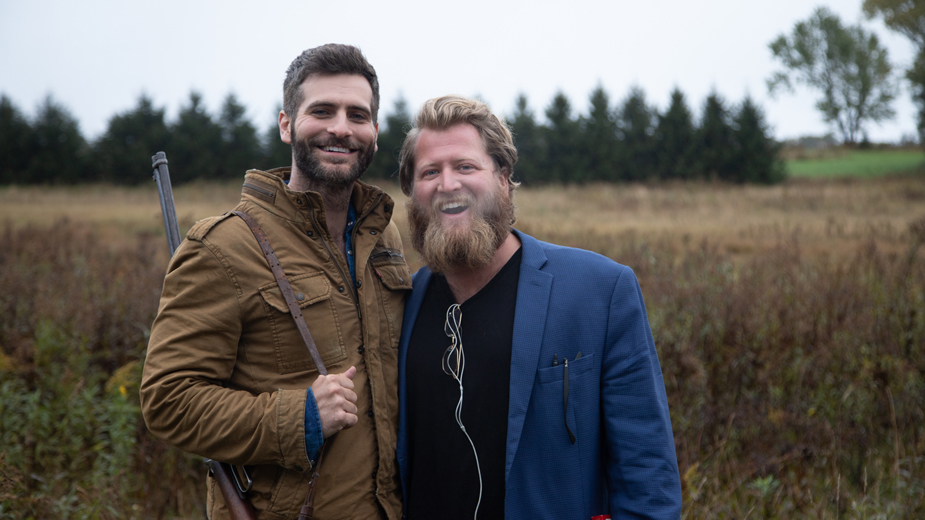With all venues closed because of the coronavirus outbreak, live theater is on hiatus.
But when they are allowed to reopen, how long will it take before attendance returns to pre-virus levels? The answer depends on how long the shutdown lasts, multiplied by how much money patrons who may be unemployed will have to spend and divided by the lingering fears of being near other people.
I’m guessing it will take months – and some scientific reassurance – before folks are ready to venture out into the crowd, where all those invisible deadly germs lurk.
The screen-viewing habit we’ve been forced into in recent weeks could become a permanent one for many folks. Television and streaming platforms are the go-to for entertainment. The major networks are getting ratings they haven’t seen in decades and the streamers are simply in a golden age.
The movie theater has long been a necessity only for those who want to see a film as soon as it is released. The multiplexes will always be popular for their social aspects but it might be a long time before some folks feel comfortable with that communal experience.
We’ve been trained to avoid it.
Plus, Hollywood has dropped the 90-day theater-only window and is releasing major films directly to homes now. It’s a temporary practice but it might take root, at least for some movies.
Then there is the new Quibi digital platform, launched April 6. It’s an outlier that is aimed at those who want to watch quality films, plus television series, on their phones in 10-minute segments.
It’s not something that I personally have been clamoring for, but the market research obviously indicates that some people want to consume entertainment via a 10-minute fix during downtime.
Quibi was planning its April launch long before the virus outbreak, but its timing has proven to be quite fortuitous now that everyone is forced to stay home.
The biggest question mark is the one facing local community theaters.
It’s a risky business predicated on assembling people in a room full of seats, and no community theater has a financial cushion fat enough to see it through an extended downturn.
On the bright side, there is no screen-centric way to generate the type of excitement that live theater delivers. There is nothing like seeing a company of actors, dancers and musicians perform as a unit right in front of your eyes. It’s really the greatest genre of entertainment, a combination of every art form.
And the electricity is a two-way street: actors and musicians need an audience to feel the energy. They crave live performance as much as the audience does.
In the Mahoning Valley, most theater groups were nearing the end of their year when the outbreak hit, and had to cancel just a few shows.
But all will be holding their breath this summer, wondering what the fall season will bring.
Grove City Theater Owner’s Film Is Now Streaming
Shooting Heroin,” a film about a northcentral Pennsylvania town’s battle with the opioid epidemic, opened last week on all streaming platforms and On Demand.
The film was written and directed by Spencer Folmar, who shot it in Clearfield County, Pa., where he grew up.
“Shooting Heroin” was to have theatrical premieres on April 3 in several cities, including at the Guthrie Theater in Grove City, Pa., which is owned by Folmar’s company, Veritas Theaters. The screenings were canceled because of the coronavirus outbreak.
The cast of “Shooting Heroin” includes Sherilynn Fenn (“Twin Peaks”), Alan Powell (“Quantico”), Gary Pastore (HBO’s “The Deuce”), Nicholas Turturro (“Law & Order: SVU”), Cathy Moriarty (“Raging Bull”) and Lawrence-Hilton Jacobs (“Cooley High”).
Folmar was in the middle of making another film when he returned to his Pennsylvania hometown last year for a visit and was stunned by the depth of the heroin problem.
His film is about a fictional small town whose residents come together and stand up to drug dealers. You can take the “shooting” part in every sense of the word.
The film itself, which I viewed, features very solid acting and direction and it definitely captures the hardscrabble look of every small town in the Keystone State in the Appalachian Mountains.
The script is an overly familiar one but it does have a twist, and it takes pains to show how the drug affects more than just the abuser.
Folmar is obviously a man who likes to get involved to correct a problem.
“I haven’t lived in Pennsylvania for many years but it is still home,” Folmar said in a press release. “I cannot stand by and watch so many friends and family members of my community be taken over by this epidemic.”
Folmar is a film producer and distributor but he is also in the process of creating his own chain of theaters. They tend to be small one-screen houses. After acquiring the 600-seat Guthrie Theater in Grove City, he has since purchased two theaters in Texas and plans to purchase and build theaters in Orlando, Fla.; Chicago; New York and Los Angeles by the end of this year.
“I’m motivated by the lack of reputable and compelling options for independent filmmakers to have a proper theatrical distribution with a distribution partner,” Folmar said. “It’s akin to that old Remington ad when the chairman said he wanted a good shave so he bought the company.”
Mo Ray Starts A Podcast
Mo Ray, the 570 WKBN radio talk show host who was furloughed this month, has moved his show to the web, where it can be found on the Facebook page of Youngstown Studio.
The show is an extension of his talk show in terms of content and politics. Ray continues to use news clips for background and to make his points.
The show airs live twice a week – Tuesdays and Thursdays at 5 p.m. – and takes calls from listeners. You can also view past episodes on the Facebook page.
